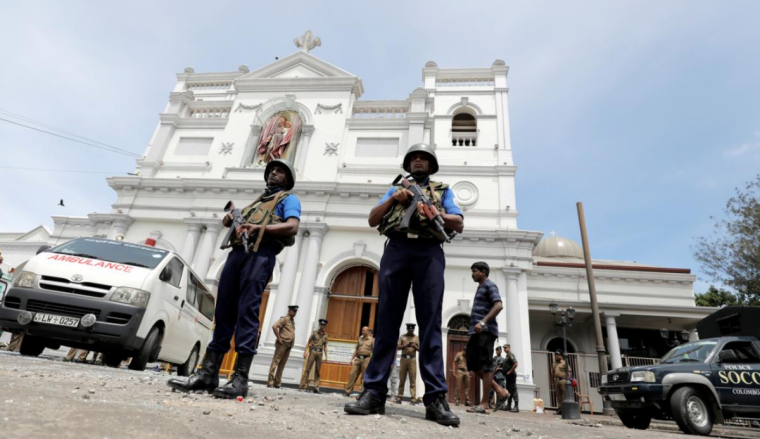Officials warn of more attacks in Sri Lanka after Easter Sunday bombings

The UK Foreign Office is advising against all but essential travel to the country after it was struck by a series of suicide bombs on Easter Sunday.
It said there was a heightened terrorism risk in the wake of the attacks on churches and luxury hotels in which around 253 people died, including eight British nationals. The death toll from the attacks has been revised down to the new figure after the Sri Lankan health ministry admitted an error in its calculations.
Foreign Secretary Jeremy Hunt said: "Following the horrific attacks on Easter Sunday, and the ongoing Sri Lankan security operation, I have received updated advice from the Foreign Office and decided to update the travel advice to British nationals to Sri Lanka to advise against all but essential travel.
"We will keep this decision under close and constant review. My first priority will always be the security of British citizens living and travelling abroad.
"We all hope the situation will return to normal very soon, and that the Sri Lankan tourism industry is able to get back on its feet following the terrorist attacks. We will do all we can to help the Sri Lankan authorities."
Britons still in Sri Lanka were told to avoid large gatherings and places of worship.
The Foreign Office said they should:
- Remain vigilant, keep up to date with developments and follow the advice of local security authorities and hotel security staff
- Keep a low profile, avoid crowded public places, large gatherings, including religious gatherings and places of worship, and any demonstrations.
- Avoid travelling during periods of curfew (other than to or from the airport)
- Keep in touch with family and friends and make them aware of any plans you may have
The Foreign Office's concerns echo a warning issued by the US Embassy in Colombo also urging people to avoid places of worship amid fears of more attacks.
"Sri Lankan authorities are reporting that additional attacks may occur targeting places of worship," it tweeted.
"Avoid these areas over the weekend, starting tomorrow, April 26th through Sunday, April 28th. Continue to remain vigilant and avoid large crowds."
The Islamic State has claimed responsibility for the attacks, which targeted three churches in Colombo, Negombo and Batticaloa as they were holding their Easter Sunday services, in addition to a string of luxury hotels.
Addressing the Commons earlier this week, Mr Hunt said the attacks must not be allowed to sow division.
"These attacks were a primitive and vile attempt to sow division between people of different faiths," he said.
"Religious tensions have caused some of the bloodiest battles in human history, and it is sombre and sobering that even in the 21st century attempts continue to set believers of different religions against each other.
"Our response must be to deny the perpetrators the satisfaction of dividing us by being united in our condemnation of the attacks and united in our support for religious tolerance – surely one of humanity's greatest achievements.
"Just as after the equally horrific attacks on the 2 mosques in Christchurch, New Zealand, we must respond by bringing people together; that is the exact opposite of what the perpetrators intended."











